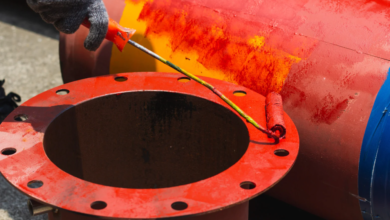Strategies for Efficient Sports Equipment Distribution

Understanding Market Needs
In the sports manufacturing industry, understanding customer needs is crucial for success. Schools, sports clubs, and retail stores often require reliable sources for equipment, especially when placing bulk orders. Meeting these demands efficiently helps build long-term partnerships and enhances the credibility of suppliers.
Sourcing Quality Materials
The foundation of durable sports equipment lies in high-quality materials. Using premium synthetic leather, reinforced rubber, and durable stitching ensures consistent performance and longevity. Bulk orders require strict material standards to maintain uniformity and satisfy end users.
See also: Understanding the Importance of a Life Insurance Policy
Streamlining Production Processes
Efficient manufacturing involves a combination of automated processes and skilled craftsmanship. Techniques such as precision stitching, molding, and quality inflation guarantee consistency across large batches. Streamlined production not only improves output but also minimizes waste and reduces production costs.
Meeting Diverse Sporting Requirements
Different sports necessitate varying specifications for equipment. Balls for soccer, basketball, volleyball, and handball have distinct weights, sizes, and bounce characteristics. Offering a wide range of products ensures suppliers can cater to a broad client base and fulfill specific sporting needs.
Implementing Quality Control Measures
Maintaining quality across bulk orders is critical. Regular wholesale sports balls testing for weight, bounce, and material integrity prevents defective products from reaching customers. Reliable quality control fosters trust with buyers and ensures safety and satisfaction for athletes.
Efficient Packaging and Shipping
Proper packaging and shipping strategies reduce damage during transit. Palletizing, protective wrapping, and careful handling are essential when distributing large orders. Timely delivery strengthens supplier relationships and ensures continuous availability of equipment.
Incorporating Sustainability
Modern buyers increasingly value sustainability. Utilizing recyclable materials, reducing production waste, and implementing eco-friendly processes make suppliers more appealing. Demonstrating environmental responsibility is an important aspect of modern sports manufacturing.
Customization for Client Branding
Offering customization options adds value to bulk orders. Logos, team colors, or event-specific branding can differentiate products and enhance marketing opportunities. Flexible customization helps suppliers stand out and attract institutional buyers.
Supporting Sports Development Programs
Access to affordable and reliable equipment supports schools and local sports programs. Bulk distribution enables consistent practice sessions and competitions, fostering talent development and encouraging active lifestyles among youth.
Innovation and Design Improvements
Continuous innovation in sports equipment design improves usability and performance. Features like enhanced grip, aerodynamic shapes, and ergonomic designs increase product appeal. Bulk production ensures that innovative designs are available to a wide audience.
Cost Efficiency in Bulk Orders
Producing wholesale sports balls in large quantities reduces unit costs and enables competitive pricing. Suppliers can offer better deals to schools, clubs, and retailers while maintaining profitability. Careful management of production and distribution processes is key to achieving cost efficiency.
Building Strong Supplier Relationships
Reliable delivery, consistent quality, and responsive customer service help establish long-term relationships with buyers. Trustworthy suppliers gain repeat business, expand market share, and strengthen their reputation in the sports equipment industry.
Conclusion
Wholesale distribution of sports equipment requires careful attention to quality, materials, production processes, and client needs. Manufacturers who prioritize efficiency, durability, and customization can thrive in this competitive industry. Meeting bulk order demands effectively not only benefits suppliers but also supports the growth of sports programs worldwide.





